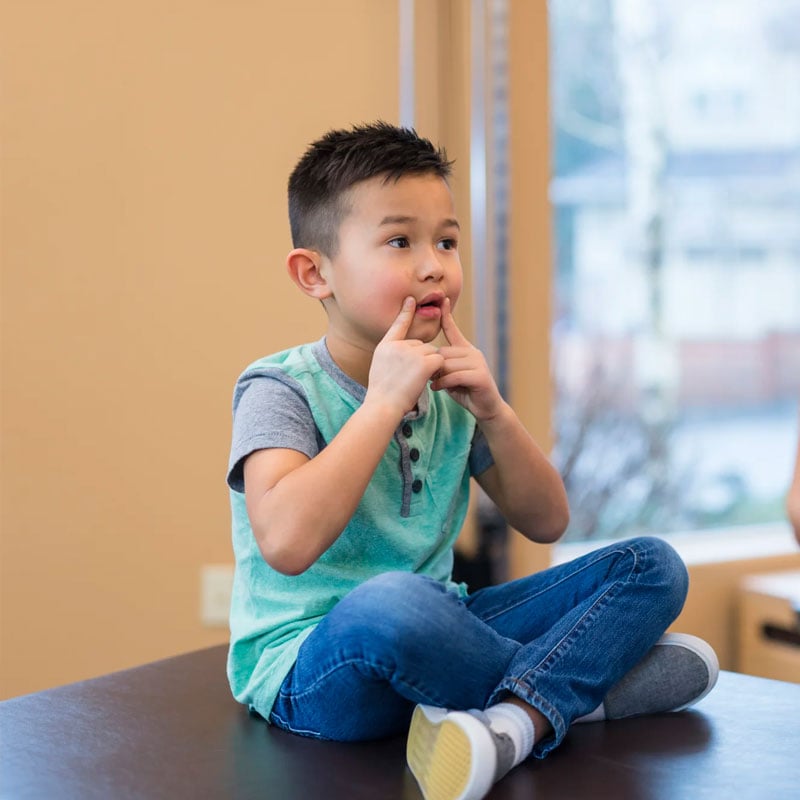Fith Year Milestones


As your child approaches their fifth birthday, they continue an exciting journey of learning and independence. They may already be in preschool or getting ready to start Kindergarten; they’re curious, inquisitive, and love to show off their new skills.
Let’s explore the key developmental milestones your child should achieve between ages 4 and 5 and what you can do to support their development and growth during the fifth year.

Your Child’s Milestones at 5 Years Old
Fine and Gross Motor Skills
- Buttons various sizes of buttons on their own
- Hops on one foot
- Can balance on one leg
- Walks up and down stairs easily
- Uses the potty on their own
- Can draw triangles, squares, and rectangles
Speech and Language Skills
- Answers simple questions about stories after you read them
- Continues a conversation with three or more exchanges
- Recognizes simple rhymes like “cat” and “mat,” “fish” and “wish,” etc.
- Tells their own made-up stories
- Answers “why” questions
Cognitive Skills
- Uses time words like “yesterday,” “bedtime,” etc.
- Writes some or all of the letters of their name
- Knows the alphabet song
- Counts to at least 10
- Asks a lot of questions
Social and Emotional Skills
- Enjoys singing, dancing, or acting
- Handles simple chores at home like putting their plate in the sink after meals
- Follows the rules when playing games with others
- Knows right from wrong and apologizes when they make a mistake
- May have imaginary friends
How to Help Your Child Achieve Their Fith-Year Milestones
Supporting your child’s development during their fifth year will help them gain the skills they need for a confident and successful life. Here are some practical tips to help your child achieve their fifth-year milestones:
Get Creative
Encourage your child to draw and color with crayons, markers, and colored pencils. You can even look up simple art projects online and try those at home. Playing with Play-Doh is another great developmental tool. Allowing your child to roll, flatten, cut, and shape the dough promotes fine motor control.
Play Games Together
Encourage outdoor activities like running, jumping, and climbing at the park. Play games such as tag or hide-and-seek to further develop gross motor skills. You can even create simple obstacle courses using cushions, hoops, and cones. Guide your child through your created maze to enhance coordination and balance.
Engage Their Imagination
Reading, singing, and imaginative play are great ways to practice speech and language skills. Read books together and ask open-ended questions about the story. Encourage your child to retell the story in their own words and share your own thoughts about the story. You can even encourage them to tell their own stories and take turns adding new elements to the story to let their imagination run wild.
Facilitate Social Skill Development
Playing with children their own age is a great way for your child to build key social and emotional skills like taking turns and empathy. You can also play pretend with them using dolls, action figures, stuffed animals, etc., to teach them more about important social skills like helping others or working together.
Encourage Them to Solve Problems
Letting your child face and figure out problems on their own is good for their cognitive development. You can even play problem-solving games like Jenga, jigsaw puzzles, or memory to encourage cognitive development. You can also encourage them to solve problems on their own by asking them what they can do about a problem they tell you about and offering suggestions as needed.
Avoid Screen Time
Children learn best by playing and talking with others, not by watching TV. While some children’s programs can have educational value, it’s best to limit screentime to no more than 1 hour per day with you or another adult present to answer any questions and participate.

What to Do if You’re Worried About Your Child’s Development
If you have concerns about your 5-year-old not reaching developmental milestones, it’s essential to take proactive steps to address the situation. Here are some recommendations:
1. Consult with the Pediatrician
Schedule an appointment with your child’s pediatrician to discuss your concerns. A healthcare professional can assess your child’s overall health and development and provide valuable insights and guidance.
2. Seek a Developmental Evaluation
Reach out to Let’s Communicate Pediatric Therapy Services for a comprehensive evaluation. This evaluation involves assessing various aspects of your child’s development, including speech and language skills, fine and gross motor skills, cognitive abilities, and social-emotional development.
3. Encourage Age-Appropriate Activities
Engage your child in age-appropriate activities that target various developmental areas. Encourage play that stimulates fine and gross motor skills, language development, and problem-solving.
4. Collaborate with Educators
If your child is attending preschool or kindergarten, schedule a consultation with their teachers. Teachers often observe children in various settings and can provide valuable insights into your child’s behavior, social interactions, and participation in activities.
5. Advocate for Your Child
Be an advocate for your child’s needs. If you feel additional services or accommodations are necessary, communicate with healthcare professionals, educators, and therapists to ensure your child receives the support required.
Reach Out to Let’s Communicate for Personalized Support
Remember, every child develops at their own pace, and variations in development are normal. However, early intervention can help address any developmental concerns and give your child the support they need for lifelong success.
If your child needs extra support, call Let’s Communicate Pediatric Therapy Services at (678) 963-0694 to schedule an evaluation. We can work with you to create a therapy plan that best supports your child’s developmental needs.
